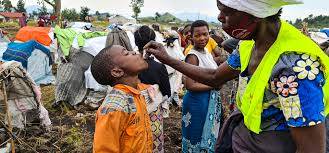Authorities Ramp Up Cholera Prevention Efforts Amid Clean Water Crisis
In a concerted effort to combat the looming threat of cholera outbreaks, health authorities are intensifying preventive measures across the region, focusing particularly on communities grappling with inadequate access to clean water and sanitation facilities. Recent reports indicate a worrying increase in cholera cases in areas already burdened by poor hygiene infrastructure, prompting local and national health officials to take immediate action.
Cholera, a highly infectious disease caused by the ingestion of contaminated water or food, poses significant health risks, particularly in vulnerable populations. The disease can lead to severe dehydration and even death if left untreated. Health authorities are particularly concerned about regions where access to clean drinking water is limited, as these conditions create an ideal environment for the bacteria to thrive.
To combat this growing threat, officials are implementing a multi-faceted approach that includes public awareness campaigns, water purification initiatives, and increased surveillance of cholera cases. Local health departments are distributing educational materials to inform residents about the importance of proper sanitation practices and the dangers of consuming untreated water. In addition, community workshops are being organized to teach families how to purify water at home using simple methods, such as boiling or using water purification tablets.
Furthermore, health authorities are collaborating with non-governmental organizations (NGOs) to provide immediate support in the most affected areas. These organizations are working on the ground to deliver clean water supplies, install temporary sanitation facilities, and provide medical assistance to those showing symptoms of cholera. They are also involved in training local health workers to recognize and respond to cholera outbreaks swiftly.
In conjunction with these efforts, the government is ramping up its surveillance system to monitor potential outbreaks. Health officials are urging communities to report any unusual increases in diarrhea cases, which could indicate the onset of cholera. This proactive approach aims to contain the spread of the disease before it can escalate into a full-blown outbreak.
As the rainy season approaches, authorities are acutely aware of the heightened risks associated with waterborne diseases. The collective efforts of health departments, NGOs, and community leaders are crucial in preventing cholera outbreaks and protecting the health of vulnerable populations. The focus remains on ensuring access to clean water and sanitation, as these are fundamental to safeguarding community health and well-being.



No comments yet
Be the first to share your thoughts!